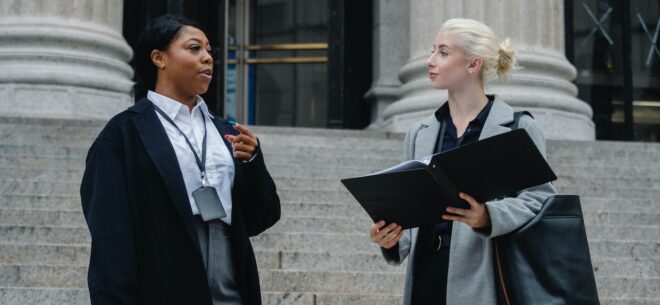
Essential Ethical Considerations When Hiring Expert Witnesses
Calling for the testimony of an expert witness calls for added caution, as does the hiring and retention process. Why? A degree of mindfulness is needed when considering the ethics of using an expert witness to further a case.
Ideally, the witness is someone to remove confusion surrounding evidence and various processes. However, undue bias, disinformation, and opinions can ultimately enter the courtroom if careless. While states may have differing opinions or stances on certain issues, these are key ethical considerations an attorney must take into account when securing an expert witness.
The first area requiring thoughtfulness is in compensation. The payment for an expert witness is for his or her experience, knowledge, and time. The fee should be discussed at the onset and is not dependent on the outcome of the proceedings, as this may improperly incentivize him or her. Furthermore, a lawyer cannot offer an inducement or contingency fee. Such regulations are established in the American Bar Association’s Model Rules of Professional Conduct.
The scale of payment varies depending on the expert. More than 40% of experts earn an excess of $10,000 on each engagement. A minor percentage, 5%, expect to earn over $50,000 on a typical case. Only about one-third, 32%, earn less than $5,000 per typical assignment. Attorneys should avoid any expert suggesting a more favorable opinion might be purchased at a higher cost.
Correspondingly, a second area requiring precaution is the witness’s ethics. His or her duty is to provide testimony owing to his or her specialized knowledge or particular connection to a subject. The opinions must be based on facts and evidence existing in the case. Because of this, the witness is obliged to provide details that could contradict the hiring lawyer’s argument. Omission or favorable coloring of the information on the part of the witness could result in bias in legal proceedings. When seeking the services of an expert witness, it’s crucial to locate a professional opposed to such practices.
In spite of this, a witness can advocate for the lawyer impartially by presenting the researched material fairly and without misrepresenting the truth the evidence provides. By remaining unbiased and emotionally unattached, he or she can prevent such prejudice as well as his or her disqualification from court.
Ethics must be considered in the procurement and use of these professionals, whether it’s for a criminal or civil case. Going forward, all parties need to be mindful of their interactions to prevent tainted testimony, obstruction, or any other problematic issues. For further information on expert witnesses and the associated ethical considerations of hiring, please see the accompanying resource.
Content Provided By Forensis Group – construction engineering expert witness [ssba]
